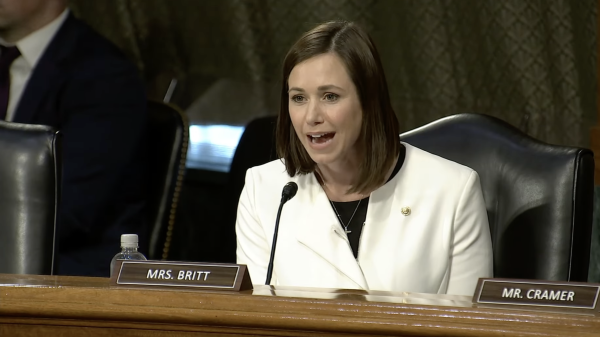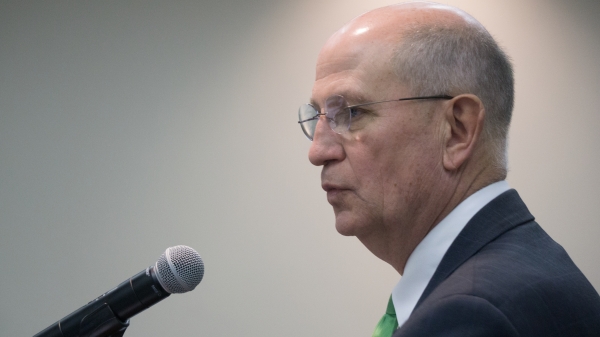By Bill Britt
Alabama Political Reporter
MONTGOMERY—The newly minted State Senator and OB/GYN who tried to overturn a law related to the death of one of his patients is not giving up the fight, according to close associates.
Sen. Dr. Larry Stutts (R- Sheffied) said recently that he “technically had decided to not move the bill forward” because of the media “firestorm.”
Stutts, who has been seated in the State legislature for only a few weeks, gained National notoriety after trying to pass SB289, which would have repealed a woman’s legal right to remain in the hospital for 48 hours after a normal live birth, 96 hours if the birth was cesarean or presented a complication. The bill would have also repealed a State law requiring physicians to notify a woman in writing that her mammogram showed dense tissue that may mask breast cancer.
This, physician-turned-legislator failed to disclose the fact that the 1999 legislation, named Rose’s Law, was passed after Rose Church, a patient in his care, died.
He also failed to tell his cosponsors that the dense tissue notification he wanted to repeal was passed by his Democratic rival in the 2014 elections, after his wife was diagnosed with stage three breast cancer (when a mammogram failed to show cancer due to dense breast tissue).
According to a close associate, Stutts’ opposition to Rose’s Law and the dense breast tissue notification is not actually a mission to repeal the random outcome caused by the growth of the government/medical establishment or Obamacare, but is “personal.”
Just days after Stutts became a National pariah he spoke with radio talking head, Matt Murphy, who most often is the go-to media man for troubled Republicans. However, Murphy, while showing Stutts great deference, did hold his feet to the fire over the bill.
On the April 2 broadcast, Stutts continued to defend the bill saying his motives were not out of “revenge or to settle a score.” He accused the media of inaccurate reporting, but failed to outline where the articles were incorrect.
When asked did his cosponsors know he had a personal connection to the woman the bill was named after, Stutts said, “I did address that with several of the co-sponsors, any of the co-sponsors that asked me in any detail about the legislation and a couple asked me how do you know about legislation and I said, ‘Well, this is something that I deal with everyday and the person that this bill was named after was my patient’ so there were some of the co-sponsors that were aware of that. Some of the others didn’t ask any questions and just said, ‘Oh yeah, I’ll co-sponsor that.’ So there is a mixed bag on dealing with the co-sponsors.”
Stutts’ assertion has been categorically denied by five of the cosponsors. The sixth sponsor, Sen. Dr. Tim Melson, said that Stutts did inform him that the bill he sought to repeal was related to a patient he had treated but never mentioned her name or any details (Melson and Stutts have been colleagues for over 20 years in the medical profession).
Stutts’ statement that he “…did address that with several of the co-sponsors” is directly contradicted by his Republican cosponsors.
Stutts said, “He didn’t want the media ‘firestorm’ to distract from other important issues,” but it would appear that his defense leads to further questions about his competence to serve in the Senate.
A close associate has said that Stutt’s simply considers this a rookie’s mistake. He will bide his time and reintroduce the bill separately in the future through a second party.





















































